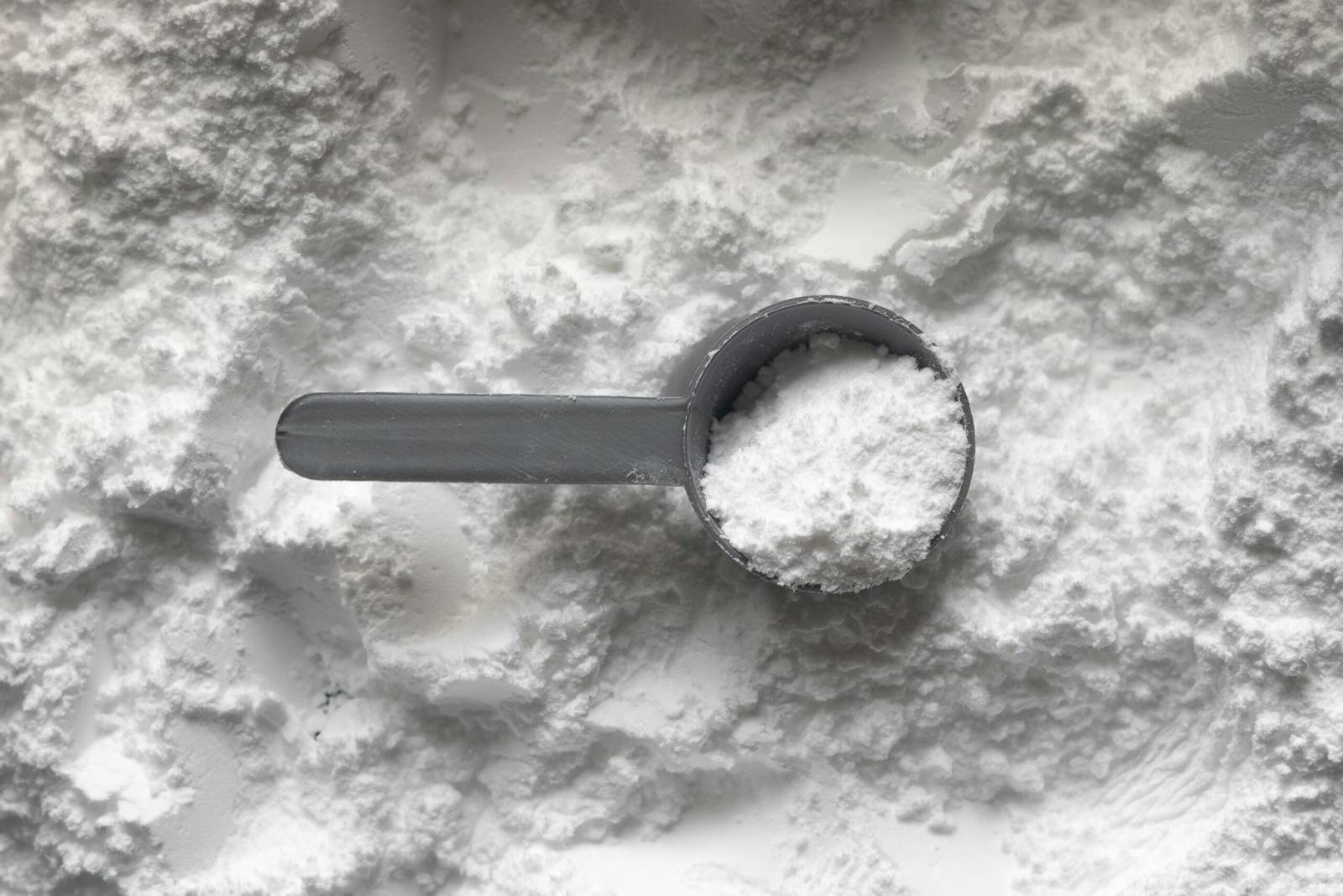Understanding Creatine: What It Is and How It Works
Creatine is a naturally occurring compound found in small amounts in certain foods and synthesized by the human body, primarily in the liver, kidneys, and pancreas. It is composed of three amino acids: arginine, glycine, and methionine. Within the body, creatine plays a crucial role in the production of adenosine triphosphate (ATP), the primary energy currency of cells, particularly during high-intensity activities such as sprinting, weightlifting, and martial arts.
During strenuous exercises, ATP is depleted rapidly, and creatine assists in regenerating ATP from adenosine diphosphate (ADP) by donating a phosphate group. This process allows athletes to maintain their performance levels in high-intensity bursts of activity, enhancing their overall training capacity and efficiency. The biochemical advantages of creatine extend beyond mere energy production; it also promotes increased muscle mass, improved recovery, and elevated training adaptations, making it a popular supplement choice among athletes, including martial artists.
Creatine supplements are available in various forms, each with its unique properties. The most common type is creatine monohydrate, known for its effectiveness and affordability. Other forms, such as creatine ethyl ester and creatine hydrochloride, claim to offer enhanced absorption and fewer side effects. However, extensive research often favors creatine monohydrate for its proven efficacy. Additionally, products may include blends containing other ingredients, such as carbohydrates, designed to enhance creatine uptake.
When deciding on a creatine supplement, it’s crucial for athletes to consider their specific training goals, dietary preferences, and any potential side effects. Understanding the different forms of creatine available can empower martial artists to choose a supplement that aligns with their performance and recovery needs, ensuring they harness the benefits of this widely studied compound effectively.
Benefits of Creatine for Martial Artists
Creatine supplementation has gained attention for its multifaceted benefits, particularly for martial artists who demand explosive strength and optimal recovery. One of the primary advantages of creatine is its capacity to enhance strength. By increasing phosphocreatine stores in the muscles, creatine allows athletes to perform high-intensity movements with greater efficiency. This is especially relevant in martial arts where striking and grappling require powerful, short bursts of energy. Studies show that athletes supplementing with creatine can experience significant gains in strength, measured through increased performance in weightlifting and similar strength-based activities.
Another crucial aspect of creatine’s impact is its effect on power output. In martial arts, rapid and forceful actions, such as kicks and punches, are essential. Research indicates that creatine can improve an athlete’s ability to generate power during such explosive movements. For example, a study published in the “Journal of Strength and Conditioning Research” found that athletes taking creatine experienced improved sprint performance and vertical jump height, both of which correlate with enhanced explosive capabilities in martial arts contexts.
Furthermore, creatine supplementation is associated with improved recovery times. Martial artists often engage in rigorous training sessions that lead to muscular fatigue. Creatine aids in the recovery process by facilitating the replenishment of ATP (adenosine triphosphate), the primary energy carrier in cells. Enhanced recovery subsequently allows for more frequent and intense training sessions, which can be a game-changer during preparation for competitions.
In addition to these performance benefits, creatine may also support endurance and overall training capacity. While traditionally not considered an endurance supplement, emerging evidence suggests that creatine can benefit aerobic exercise—particularly in sports that require intermittent high-intensity efforts. By bolstering energy production and reducing muscle soreness, martial artists can better manage their overall training demands.
Considerations and Potential Side Effects
When contemplating the use of creatine among martial artists, several important considerations must be addressed. Firstly, it is crucial to understand that individual tolerance to creatine can vary significantly. While many athletes experience beneficial effects such as increased strength and improved recovery, others may encounter uncomfortable side effects, including gastrointestinal discomfort or muscle cramping. As such, personalized approaches to supplementation should always be undertaken, ideally with the guidance of a healthcare professional.
Proper dosing is another critical factor. Creatine is typically consumed in cycles, and exceeding the recommended dosage can lead to adverse effects rather than improved performance. For martial artists, who often prioritize agility and flexibility, adhering to the recommended amounts of creatine is paramount to avoid unnecessary weight gain and reduced mobility. It is often suggested that users start with a loading phase followed by a maintenance phase to ensure optimal benefits while minimizing potential side effects.
A common concern regarding creatine supplementation is its association with water retention. While creatine does increase water content within muscle cells, leading to enhanced muscle volume, this does not automatically equate to weight gain that hinders performance. In fact, many martial artists may find that the increased hydration helps sustain their energy levels during strenuous training sessions. Nonetheless, it is advisable for individuals to monitor their body’s response closely when initiating supplementation.
Additionally, it is essential to assess the myriad myths associated with creatine use. Addressing misconceptions about weight gain and agility limitations can help martial artists make informed choices. By focusing on a balanced evaluation of benefits against potential drawbacks, martial artists can effectively integrate creatine into their training regimen without compromising their performance goals.
Conclusion: Should Martial Artists Use Creatine?
After a thorough analysis of the benefits and considerations surrounding creatine supplementation, it is clear that the decision for martial artists to incorporate this compound into their training regimen is not a one-size-fits-all answer. Creatine is widely recognized for its potential to enhance performance, particularly in high-intensity and short-duration activities, which can be beneficial for martial artists during training and competitions. However, the implications of its use may vary depending on individual circumstances.
The efficacy of creatine often hinges on specific training goals. For martial artists focusing on explosiveness, strength, and power, creatine can provide an edge by improving muscle recovery times and enhancing overall performance during high-intensity drills and sparring sessions. Therefore, athletes seeking to maximize their training output and competitive advantage may find creatine useful. However, those who prioritize endurance and sustained energy over short bursts may need to consider other supplements more aligned with their objectives.
Moreover, the timing of creatine intake is a critical factor. Athletes must consider their competition schedules, as the body may require time to adjust to the supplementation. Additionally, pre-competition considerations regarding weight class and hydration levels also play a significant role in deciding whether to use creatine. Importantly, every athlete’s body reacts differently to supplements; thus, a personalized approach is essential. Consulting with healthcare or nutrition professionals is strongly advised to create a tailored strategy that aligns with specific needs and health conditions.
In conclusion, while creatine presents potential benefits for martial artists, its use should be carefully evaluated against individual training goals, competition timelines, and health considerations. A well-informed decision is paramount for effective training and optimal performance.

